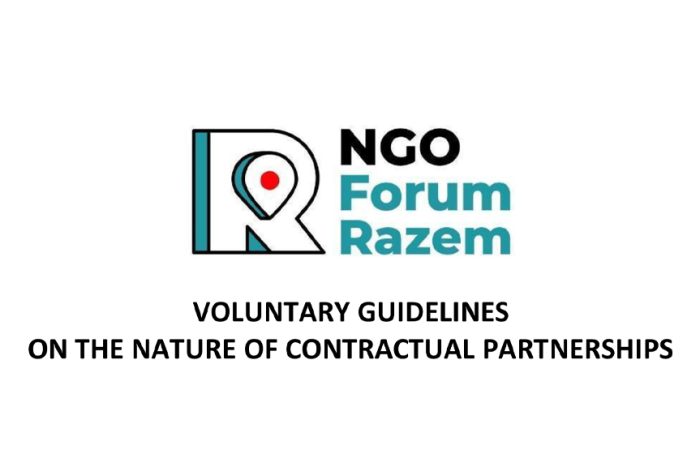Voluntary guidelines on the nature of contractual partnerships
The Polish NGO Forum “Razem” – a platform creating space for multilateral cooperation for non-profit organizations active in the fields of migration and integration, enabling co-creation of solutions for people with refugee and migration experience in Poland and for the Polish society – presents the Voluntary Guidelines on the Nature of Contractual Partnerships between INGOs and L/NNGOs.
The Voluntary Guidelines are the result of the work of the Partnership Working Group, established in March 2023 under the NGO Forum. The Working Group was called for in response to the Open Letter to International Donors And Organizations That Want To Help Ukrainian Refugees In Poland, published by the Polish L/NNGOs in October 2022 and to the broader discussions surrounding the challenges to implementing the localisation agenda in Poland. The Voluntary Guidelines on the Nature of Contractual Partnerships are the result of a series of monthly in-depth discussions – with Polish-English simultaneous translation provided – on topics raised in the Letter and then selected at as the most urgent to build better cooperation between NGOs active inside the Ukraine Refugee Response in Poland. The Voluntary Guidelines include:
- Core Voluntary Guideline on Transparency And Mutual Respect
- Voluntary Guideline on Due Diligence
- Voluntary Guidelines on Funding Cycles
- Voluntary Guideline on Overhead Costs
- Voluntary Guidelines on Reporting
- Voluntary Guidelines on Exit Strategies And Long-Term Strategies
While the Voluntary Guidelines play into the global conversation surrounding localisation of humanitarian aid, they reflect the experience from the ground and were meant to tackle the issues from this specific context in a pragmatic and realistic way, taking into account the responsibility of INGOs and L/NNGOs alike. Nevertheless, they can inform the broader humanitarian community, including UN agencies and humanitarian donors, of the operational challenges and possible solutions coming from Polish practice.







